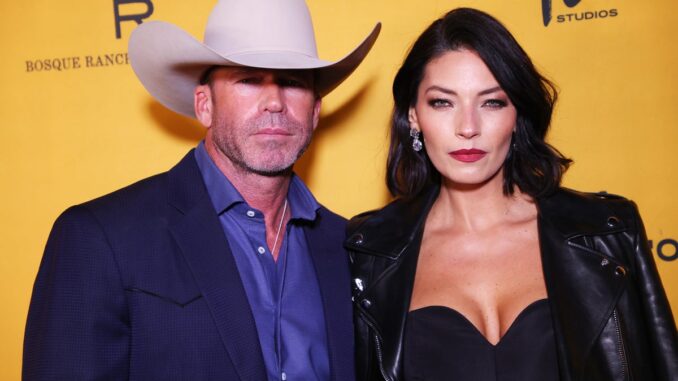
Out On the Range: Why Taylor Sheridan's 83% Western TV Reign Beats the Silver Screen
The dust devils dance across the Montana plains, mirroring the whirling passions and betrayals that define the modern Western landscape sculpted by Taylor Sheridan. While cinematic Westerns have their place in the pantheon of American storytelling, Sheridan's foray into episodic television, particularly exemplified by his 83% rated shows like "Yellowstone" and its spin-offs, achieves a level of depth and complexity that no single film can match. This superiority boils down to one key reason: sustained narrative immersion.
The classic Western movie is a two-hour microcosm. It establishes a conflict, introduces characters, and resolves the situation within a tightly compressed timeframe. We see the gunfight at the O.K. Corral, the building of a railroad, or the conquering of the West, but these events are snapshots. Sheridan's television shows, however, are sprawling sagas that unfold over multiple seasons, allowing for a profound and nuanced exploration of character, relationships, and the enduring challenges of the Western ethos in a rapidly changing world.
Consider the Dutton family of "Yellowstone." In a movie, we might see John Dutton, the patriarch, as a stoic rancher battling encroaching developers. But through five seasons, we witness the intricate layers of his character: the fiercely protective father, the ruthless businessman, the man haunted by his past, and the flawed leader clinging desperately to a fading way of life. This multifaceted portrayal, born from the luxury of time, allows us to understand his motivations, empathize with his struggles, and even grapple with his morally ambiguous choices in a way that a two-hour film simply cannot.
Similarly, Sheridan's shows excel at developing complex relationships that resonate deeply with audiences. The volatile dynamics between John Dutton and his children, each grappling with their own ambitions and traumas, form the bedrock of the narrative. The slow-burn romance between Beth Dutton and Rip Wheeler, a love forged in hardship and unwavering loyalty, is a testament to the power of sustained storytelling. These relationships, built over years of shared experiences, betrayals, and reconciliations, become the emotional core of the series, drawing viewers into the Duttons' world and forging a connection that transcends the screen.
Furthermore, the extended narrative allows Sheridan to explore the broader societal context of the modern West with greater nuance. His shows delve into the complexities of land rights, the conflict between tradition and progress, the struggles of Native American communities, and the pervasive influence of money and power. These themes, often relegated to subplots in Western movies, become central to the narrative in Sheridan's television universe, offering a more comprehensive and insightful commentary on the challenges facing the American West today.
For instance, the ongoing battle between the Duttons and the Broken Rock Indian Reservation, led by Chief Thomas Rainwater, is far more than just a land dispute. It's a clash of cultures, a reckoning with historical injustices, and a reflection on the enduring legacy of colonialism. These complexities require time and careful consideration, something that a movie, constrained by its runtime, can rarely provide.
Of course, Western movies hold their own unique charm. The sweeping vistas, the iconic soundtracks, and the legendary heroes etched in our collective memory all contribute to their enduring appeal. But Sheridan's television shows, with their extended narratives, offer something more profound: a sustained narrative immersion that allows for deeper character development, more complex relationships, and a more nuanced exploration of the modern West. They are not just stories about cowboys and ranchers; they are sagas about family, legacy, and the fight to preserve a way of life in a world that is constantly changing. This immersive quality, ultimately, is what makes Sheridan's 83% rated Western TV reign superior to any single film. The dust may settle on the big screen in two hours, but on the plains of television, the story continues to unfold, drawing us deeper into the heart of the American West with each passing episode.
